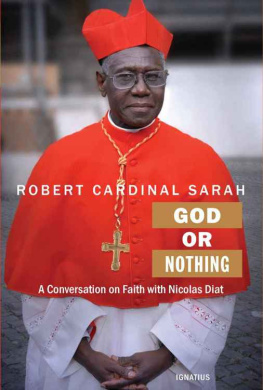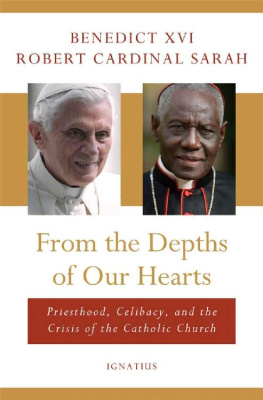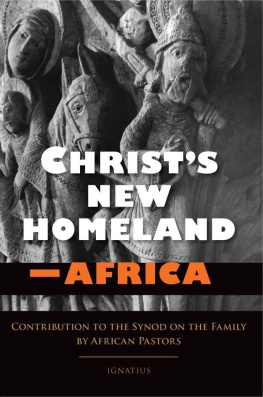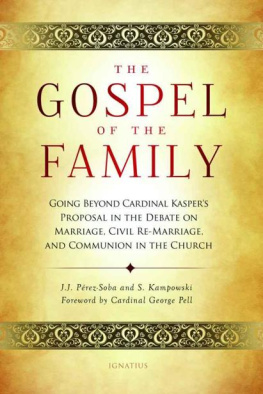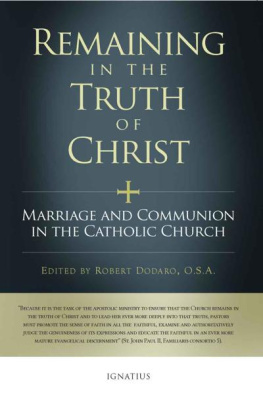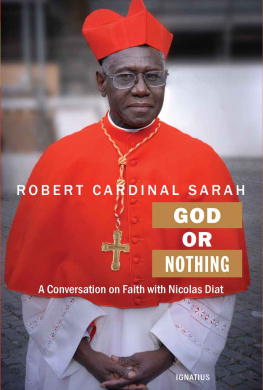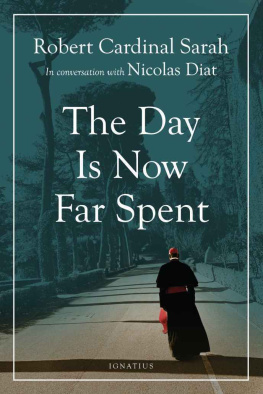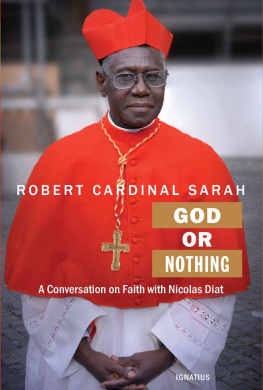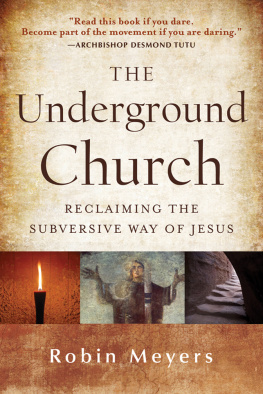GOD OR NOTHING
Robert Cardinal Sarah
with Nicholas Diat
God or Nothing
A Conversation on Faith
Translated by Michael J. Miller
IGNATIUS PRESS SAN FRANCISCO
Original French edition:
Dieu ou rien: Entretien sur la foi
2015 by Librairie Arthme Fayard, Paris
Cover photo of Robert Cardinal Sarah by Stefano Spaziani
Cover design by Roxanne Mei Lum
2015 by Ignatius Press, San Francisco
All rights reserved
ISBN 978-1-62164-050-9 (PB)
ISBN 978-1-68149-673-3 (E)
Library of Congress Control Number 2015939070
Printed in the United States of America
To Monsignor Louis Barry,
whose courage made him so great .
To Brother Vincent,
and to all those who take turns without a break at his bedside .
For nothing is impossible with God.Luke 1:37Let all of you then live together, one in mind and heart, mutually giving honor to God in yourselves, whose temples you have become.Saint Augustine, Rule Because the man of the world wants to change his place, his destiny, his idols, and to change them perpetually, the friend of God must remain and stay in the place where God has put him. Indeed, between the friends of God and the world there is an antithesis and a rupture. What the one chooses, the other rejects. Otherwise there would no longer be two camps, but only one: the world.Father Jrme, crits monastiques
CONTENTS
INTRODUCTION
God is found by the low paths .Father Jrme, Car toujours dure longtemps.. .
There are radical encounters that change some aspect of our way of looking at things. My encounter with Robert Cardinal Sarah was definitely of this sort. There was no before and after, but the obvious fact of being with a man of God.
Father Jrme, a monk at the Abbey of Notre-Dame de Sept-Fons of the Order of Cistercians of the Strict Observance, wrote in Lart dtre disciple (The art of being a disciple), Do not ask your master to talk just for the sake of talking. Ask him about the problems of human destiny and other related problems, problems that are still relevant today. How does he himself experience them? How does he manage to accept them with courage and peace of mind? Ask him what he knows with certainty, what he no longer questions, what he considers indisputable and unchanging. Have him talk about the drama of his true self, not about the artificial role that may be imposed on him by circumstances. Have him talk about his disappointments and his hopes, about his religious faith, his trust in God, his prayer. Ask him how and to what extent he has been freed of himself by giving himself. Find out the source of his clear-sighted self-denial. Let him confide in you what he learns in his silence. Let him tell you where his tears come from and what makes him smile. Get to the heart of this man. And if he agrees to take up his schoolbooks or his apprenticeship tools again in order to help you, thank him by your docility.
Over these months of interviews with Robert Cardinal Sarah, I tried to put into practice the simple yet demanding instructions of Father Jrme. This saintly Trappist monk was writing to a novice to encourage him to try to understand his masters counsel and requests better.
Robert Cardinal Sarah is an extraordinary spiritual master. A man great in his humility, a gentle and firm guide, a priest who never tires of speaking about the God he loves.
Robert Cardinal Sarah has had an exceptional life, even though he sincerely thinks that it is, on the whole, rather commonplace.
Robert Cardinal Sarah is a friend of God, a merciful and forgiving man, a man of silence, a good man.
When I think back to the long hours that we spent together working on this book, I always come back to those first moments, when he spoke to me about his childhood in the most remote parts of Guinea, deep in the bush, at the ends of the world, about the little village of Ourous, about the half-light of the church, about the missionaries, about his parents and his people, the Coniaguis.
I am certain God had his eye on the cardinal in a special way; I also think that his expectations are immense. But God can rest assured, because the cardinal loves him in the most beautiful way a man can love his Father.
In this book, the new prefect of the Congregation for Divine Worship and the Discipline of the Sacraments talks a lot about Benedict XVI. With admiration, gratitude, and joy.
But the pontiff to whom Robert Cardinal Sarah feels closest is Paul VI. There is, so to speak, a mysterious parallel between Giovanni Battista Montini and this son of Africa. Their spiritualities, their theologies converge on the same simple and ascetic road to God.
Certainly, in the final hours of his reign, Paul VI chose a priest with little experience to make him the youngest bishop in the world. The name of this man was Father Sarah. But the relation between them was more extensive, more secret, more profound. The link between Paul VI and Cardinal Sarah is found in their spirit of childhood, docility, and radicalism in following the demands of truth, whatever the cost.
During his general audience on September 1, 1976, Paul VI was able to say, To build the Church, we must labor, we must suffer. The Church must be a strong people, a people of courageous witnesses, a people that knows how to suffer for its faith and for spreading it throughout the world, in silence, gratuitously, and always through love. Two years later, Paul VI left this world. Yet these few words could be spoken once again by Cardinal Sarah, who has never forgotten that the Church must be a strong people, for nothing in his life was ever easy or free. A man who lived through one of the bloodiest dictatorial regimes in Africa appreciates better than anyone the value of this meditation of Paul VI from the year 1963, when the successor of Peter was just starting on his path: Does God speak to the troubled soul or to the peaceful soul? We know perfectly well that in order to listen to his voice, a bit of calm and tranquility must reign. We must keep ourselves far from all intimidating excitement or nervousness and be ourselves. That is the essential thing: within ourselves! Consequently, the encounter is not outside but within ourselves.
If the reader should take away one thing from this book, it is no doubt what the cardinal confided regarding the moment when it seemed impossible for him to accept his episcopate, given all of Guineas political, economic, and social difficulties. Robert Sarah then left for a hermitage, far from the commotion and troubles, to be alone with God, fasting from all food and water for several days, the Eucharist and the Bible his sole companions. The whole personality of the child from Ourous, guided by Spiritan missionaries, is found here. And nowhere else. His message really is that of Paul VI, who was not afraid to declare in 1970, It is necessary that everyone learn to pray both in himself and by himself. A Christian must know how to have a personal prayer life. Every soul is a temple. And when do we enter into this temple of our consciousness to worship God who is present there? Would we be empty souls, even though Christian, souls that are not present to themselves, forgetting the mysterious and ineffable encounter, the filial and inebriating dialogue that God, the one God in three Persons, deigns to offer to us within ourselves?
Many extraordinary things happened in the life of Cardinal Sarah, in particular the origins of his priestly vocation. Nothing in the animistic surroundings in which he grew up predisposed him to leave his village to enter a minor seminary at age eleven. The day when he left his parents, taking with him only a small bag, marked the beginning of a long and tumultuous crossing, as if obscure forces were trying in every possible way to prevent this young adolescent from becoming a priest: poverty, separation from his family, a Marxist dictatorship, military persecution, the storm that raged in the Church, the ill winds of ideology... Yet this man stood firm because he thought that God would always be near him.
Next page
